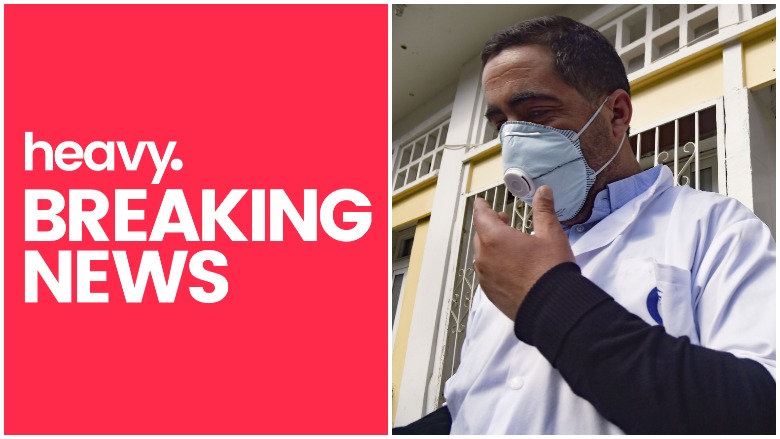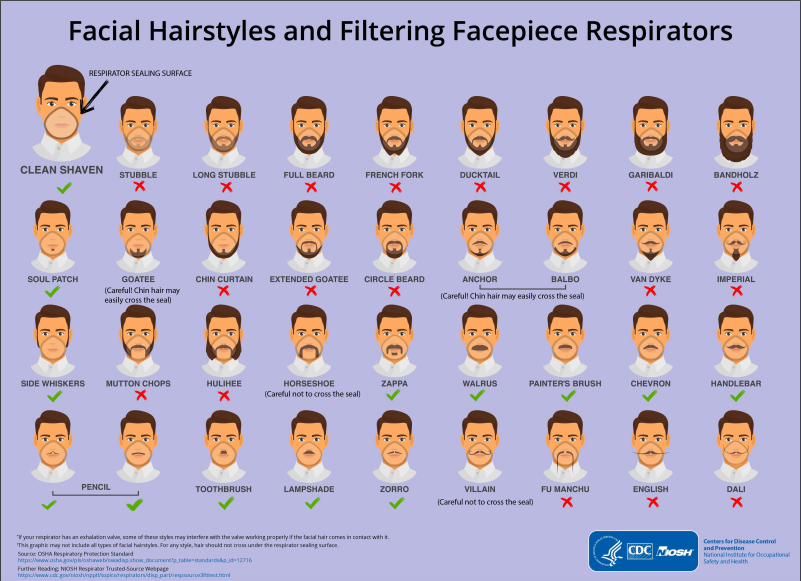
The Centers for Disease Control issued an advisory infographic on what facial hairstyles work with facepiece respirators. The advisory boils down to the fact that facial hair should not cross the respirator seal around the skin.
As Coronavirus spreads throughout the world, at the time of writing 36 countries have confirmed cases of the disease, face masks and respirators have become popular consumer items.
On January 28, the BBC reported that face mask retailer BABA had sole 80 million masks over the course of two days. While a spokesman for another manufacturer, Honeywell, told Marketwatch in January that their company had seen a “surge in demand” in North America, Europe and China” for face masks. By February 26, respirator masks were the biggest selling Automotive product on Amazon.
The CDC does not recommend the regular use of facial respirators outside of work.
Among the Dangerous Facial Hair Styles Are a ‘Full Beard’ & ‘Fu Manchu’

The CDC originally posted this helpful graphic on its website in November 2017. Among the unacceptable styles of facial hair are a “Full Beard,” “French Fork,” “Ducktail,” “Van Dyke,” “Fu Manchu” and “Mutton Chops.” While the acceptable styles include, “Toothbrush,” “Zorro,” “Painter’s Brush,” “Chevron,” “Handlebar,” “Zappa” and “Walrus.”
The blog post was aimed at men who work in jobs that require face masks or respirators. According to the CDC, “Facial hair that lies along the sealing area of a respirator, such as beards, sideburns, or some mustaches, will interfere with respirators that rely on a tight facepiece seal to achieve maximum protection.”
The blog post goes on to say that even though facial hair may seem thick to the naked eye, it is “just not dense enough and the individual hairs are too large to capture particles like an air filter does.” The blog also cites a study that says that even one or two days of stubble growth can affect how a respirator mask works.
According to the National Institute for Occupational Safety and Health, workers are not allowed to have facial hair that interferes with the seal of a facepiece. The only possible exceptions are a narrow mustache or a soul patch beard.
READ NEXT: Teenage Porn Star Controversy Rocks California High School